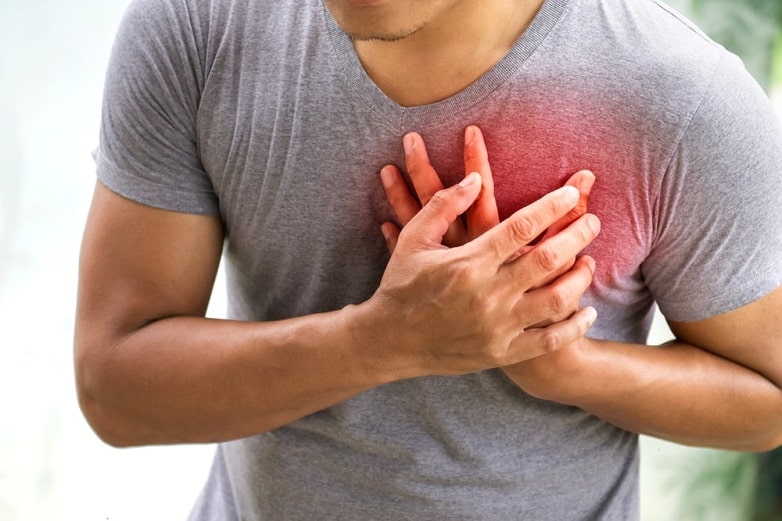Is It Indigestion or Heart Attack?
When you or someone you love has a sudden, sharp chest pain, you may wonder: is this a heart attack – or simply indigestion?
Heart attack and indigestion can share some similar symptoms. Indigestion can often be treated successfully at home with over-the-counter antacids, while a heart attack requires emergency medical care. That’s why it’s essential to learn how to spot the differences between these two conditions.
Chest discomfort can be a cause for concern, and it's natural to worry about whether it's a simple case of indigestion or something more serious like a heart attack. While both conditions can manifest with similar symptoms, it's crucial to understand the differences and know when to seek medical attention. In this blog, we'll explore the distinctions between indigestion and a heart attack, potential risk factors, and preventive measures to promote heart health.
Also see: 10 Ways to Get Rid of Indigestion Fast
What Is Indigestion?
Indigestion occurs when stomach acids back up into the esophagus, causing a burning sensation in the chest. The condition is sometimes called “heartburn” because the pain often occurs just behind the breastbone, or sternum, on the left side of the chest near the heart.
Indigestion, also known as dyspepsia, is a common digestive issue that typically arises after eating. Symptoms include bloating, belching, and a burning sensation in the upper abdomen. Indigestion is usually benign and can be triggered by overeating, consuming spicy or fatty foods, stress, or smoking.
Symptoms Of Indigestion
Chest pain associated with indigestion is typically sharp, rather than dull. The pain often occurs immediately after eating and may also be accompanied by regurgitation of bits of food in the back of the throat.
Chest pain that's caused by indigestion usually feels more like a burning sensation in the chest. In addition to chest pain, severe indigestion can also be marked by the following symptoms:
What Is A Heart Attack?
A heart attack happens when blood flow to the heart becomes blocked. These blockages can occur when blood clots or a narrowing in the arteries – a condition known as arteriosclerosis marked by a build-up of plaque caused by fat and cholesterol – restrict normal blood flow.
The medical term for a reduced blood flow is ischemia. When part of the heart muscle suffers damage as a result of ischemia, it’s called a myocardial infarction, more commonly known as a heart attack.
Also see: 6 Ways To Get Rid of Your Cholesterol Fast
Symptoms Of Heart Attack
For both men and women, the most common symptom of a heart attack is chest discomfort. Chest pain associated with a heart attack is typically dull, rather than sharp. Patients who have suffered a heart attack often report feeling pressure in their chest, as if someone is sitting on them.
In addition to chest pain, typical heart attack symptoms include:
- Pressure or tightness in your chest or arms that may spread to your neck, jaw or back
- Nausea or abdominal pain
- Shortness of breath
- Cold sweats
- Fatigue
- Nausea or vomiting
- Lightheadedness or sudden dizziness
Remember this blog provides general information and should not replace professional medical advice. Anyone experiencing these heart attack symptoms should call or visit the Closest Emergency Room for a immediate medical help.
We have ER locations across the Dallas-Fort Worth metropolitan area that are open and here to help you 24/7 If you or your family have a medical emergency.
We have 9 facilities spread across the DFW area with average wait times of less than 10 mins that are OPEN 24/7 located in Hurst, Colleyville, Frisco, Highland Village, Hillcrest, Uptown, Little Elm, Mansfield, and Texoma.




.jpg)